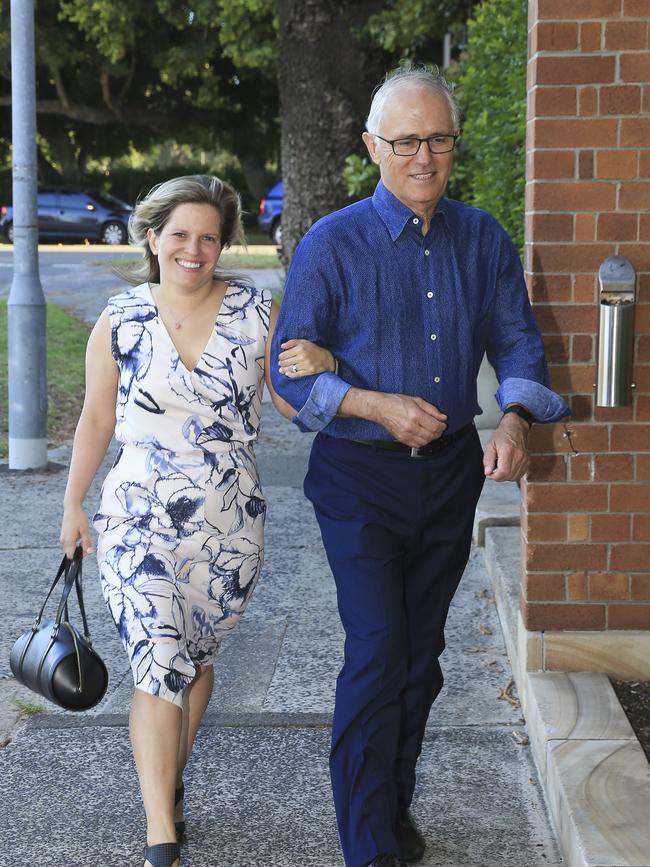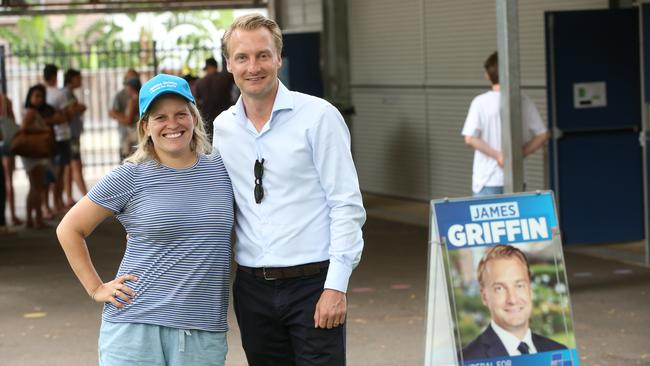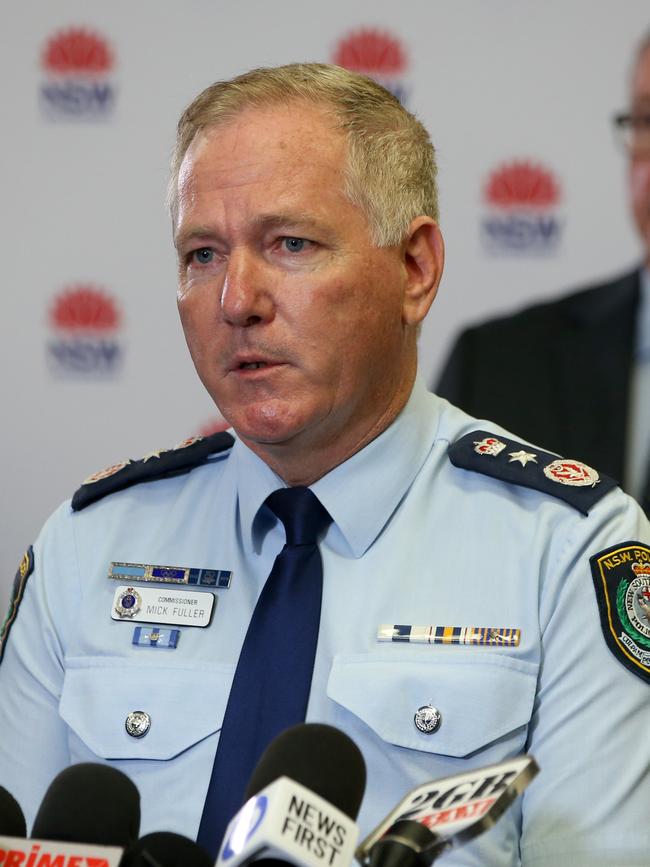Why Libs want Daisy Turnbull to run for safe seat of Coogee
Malcolm Turnbull’s daughter Daisy has been tapped on the shoulder to run for the seat of Coogee and there’s a clear reason why, writes Anna Caldwell.
Opinion
Don't miss out on the headlines from Opinion. Followed categories will be added to My News.
The NSW Liberal Party has approached Daisy Turnbull to run for the Sydney seat of Coogee in the next state election.
This column can reveal party operatives have identified Turnbull — a teacher and author — as precisely the kind of smart young woman who could shape the party’s future fortunes.
The party believes Turnbull would bring a wealth of experience as a highly respected teacher to parliament.
Turnbull, for her part, is currently happy working as a teacher, deeply committed to her job as director of wellbeing at St Catherine’s in Waverley and is already at work on her next book on teenagers. No final decision has been made for the seat of Coogee, which the Liberals want to win back from Labor, but you can bet that they will continue to try to woo the young Turnbull to try her hand at it.

The issue of putting strong female candidates in winnable seats is an important one for both parties. They each struggle with female representation and need to work harder on this front.
But there’s another reason as well.
It is clearer than ever that the issues of violence against women and respect for women are going to be defining political paradigms not only of this year but certainly of this term of parliament and probably longer.
Everyone has a right to feel safe and to be safe, at home, at work, in the dark and in the light.
It’s now impossible to unhear the stories told by brave women like Brittany Higgins, Grace Tame and Chanel Contos this year.
Politicians who are able to speak for women who cannot speak for themselves will be critical to how our parliaments and legal systems grapple with the problems we have been presented with.
Female political representation is important here, and so is the election of politicians with real world experiences — such as teachers, lawyers, psychologists, police and doctors — who will be real assets as our parliaments embark on reform.

While many of these conversations have started in Canberra, it will be state governments, through their education systems, police forces and justice systems that need to respond. Anyone who thinks these are marginal “identity politics” topics is kidding themselves.
These are questions about safety and respect — which will never be marginal — and in fact are at the heart of polling success for state governments.
Police Commissioner Mick Fuller spoke passionately in an interview published yesterday on the front page of this paper about the need to tackle the problem of sexual assaults on women.
Readers should be stunned to learn that 15,000 complaints are made each year, a figure he says is growing “exponentially”, and yet less than 300 of those complaints lead to guilty verdicts.
The problem is not vexatious women inventing complaints as it has been characterised in archaic quarters for too long.
The problem is they are horrifically difficult to convict. The problem is perpetrators get away with it.
Hazy concepts of what constitutes consent and the importance of consent are part of this.
As is a cultural problem of disrespect.
Fuller knows this better than many. He’s a bloke who has sat around his whole career reading the horrific police reports these victims make.
He wants to make a change. He wants victims supported and he wants them to get results in the justice system.

One of his ideas was using technology, such as an app, to record consent.
Critics were quick to attack him, suggesting he had over simplified the problem and that an app would only protect perpetrators. Others scoffed at the idea as unromantic.
But Fuller was serious and genuine about wanting to have a conversation about consent and respect for women.
He himself admitted an app wasn’t a perfect solution. He knew consent could be withdrawn at any time. But he saw an app as “a starting point”, which would raise awareness about the importance of active consent.
While many may disagree with the idea of using an app to record consent, they are wrong to try to beat down a police commissioner who is publicly agitating on sexual violence against women.
Gladys Berejiklian, who did not state an opinion on the app, was right yesterday to praise Fuller for showing leadership and starting a conversation.
Critically, Fuller said outright that consent cannot be implied any longer – putting him ahead of the government which is still finalising its position on legal consent definitions.
He also said impairment through drugs and alcohol was unfairly used against women when they tried to build a case – a problem he said needed fixing.
The NSW parliament will tackle legal definitions of consent in this year “sooner rather than later”, the government says.
There are also calls for schools to play a greater role in teaching sexual respect.
And, more work needs to be done to the legal system so that victims find it easier to navigate.
Women’s Safety NSW chief executive Hayley Foster said any law change around consent must be done “in tandem with reforms to criminal procedure and evidence rules which make it safer and less traumatising for victims”.
The truth is we all have a role to play. And that starts with encouraging conversations – not just privately but publicly – about consent.
Federal Liberal MP Fiona Martin, who was a psychologist before entering parliament, this week called for universal, compulsory education on consent.
In NSW, state Liberal MP Felicity Wilson has been privately encouraging her government colleagues to take a stand on the issue.
She has been emailing them, and even urged her moderate factional colleagues at their regular Wednesday night pizza dinner to step up.
On the other side of the chamber, upper house Labor MP Rose Jackson led the charge in estimates hearings quizzing Mr Fuller on consent.
Labor member for Lakemba Jihad Dib — a former teacher from a boys high school — stood up in parliament on Wednesday night calling for everyone to work together for a “whole of society approach” including education and awareness program detailing respect, consent, sexuality, power, offences and consequences.
People like Fuller, Martin, Wilson, Jackson and Dib might feel now like they are sticking their heads up on tough issues but they should be commended.
There will be resistance, people will criticise them for not getting things quite right, but in the long term, they are playing a role in what will be important criminal and social reform.
We can’t put the genie back in the bottle and parliament must confront these long held problems that are at last being publicly thrashed out.




